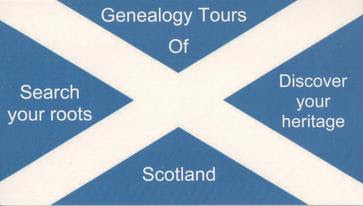There has been quite a bit of chatter on Facebook the last few days about the low attendance at the recent FGS Conference. I recall the same sort of chatter last May following the NGS Conference. While low attendance is certainly a concern for the exhibitors and vendors, I have to wonder if large conferences are going the way of microfiche.
People get so much online - even the opportunity to network. So much of this connection is now done through FaceBook groups. In terms of the learning, webinars and online courses are more convenient and less costly for learners because there are no travel or hotel costs, and that also means that the travel time, time away from work or family is significantly diminished as well.
Certainly RootsTech seems to still be successful in attracting large numbers, but RootsTech skews the bigger picture. Rootstech has large numbers because of the free passes that are given to Ambassadors to give away. We all see the blogs and posts for weeks with free passes to be claimed. RootsTech has large numbers because of the Family Day on Saturday when busloads of people show up. All for free. Those people aren't traveling long distances. Those people aren't paying registration fees. Those people aren't paying for accommodation or meals. Those people aren’t really interested in attending a genealogy conference. The classes they take are all geared for the LDS and when they get to the Exhibition Hall, they are not interested in small vendors or in spending money. They are there to get access to the free databases from the large corporations and to grab whatever freebies the other exhibitors and vendors are giving away. A number of smaller businesses have stated that they won’t be returning to RootsTech because RootsTech is not small-business friendly and the smaller vendors and exhibitors are not even coming close to breaking even on their investment to attend RootsTech.
The smaller, more regional conferences seem to continue to attract decent numbers. What’s the difference? Fewer people traveling long distances? Less frequency (some are every other year rather than every year)? Lower expectations from the vendors and the attendees, perhaps? Organizers being more grateful for any level of support, including small business vendors or society exhibitors?
I recently hosted a very successful (yes, small) conference for the Scottish Diaspora. The theme of this year’s conference was “Engaging Our Youth” In recognizing that we are all getting older, have worked tirelessly and don’t want all of our years of blood, sweat and tears to be for naught, we need to look at ways to get younger generations as passionate about our organizations as we are. Fair enough.
One woman was quite incensed that their Society's Facebook page’s followers were referring to themselves as members. It was in that moment that I realized that part of what needs to happen is that we need to adjust our thinking. Just as we have gone from thinking that the only way to do genealogy research was by writing letters, scouring microfiche and transcribing directories to being comfortable with researching online databases, we need to readjust our understanding of what constitutes membership. Those people do feel that they belong. That they are members. Even if they haven’t paid a fee or attended a meeting. This group is their tribe. We can’t overlook that.
Similarly, we need to change the way we look at genealogy conferences. The interest in taking several days away from our lives, traveling long distances, paying for accommodation and meals is waning. We can’t overlook that.

Christine, I can appreciate what you have said in this post. Aside from RootsTech, which is a whole different story, the conferences are just not packing them in.
ReplyDeleteI look forward to the time when there is a major conference that is within travelling distance of me!
ReplyDeleteAll we have in the UK are one-day exhibitions (some with a few "talks" by the exhibitors tacked on). If you've been to one, you've been to them all.
It is really time that this hobby got itself together and organised an event that truly advanced knowledge and skill in the art of genealogy.
It could be the cost of the conference, air travel, hotels and meals.
ReplyDeleteI admit I learn as much (or more) from smaller, focused conferences than RootsTech. What it offers for me is the opportunity to hear speakers who I wouldn't hear otherwise, and all those booths and suppliers, and discounts.
ReplyDeleteFor me it is the cost of travel and lodging, not the cost of the conference. Plus I can see webinars of most topics for a much lower fee. And lastly, the more regional conferences don't have the bigger named speakers, so they are not as attractive to me.
ReplyDeleteThanks, Christine, for the analogy. However, I'm going to have to disagree that webinars and other online offerings are killing off conferences and seminars. Your post prompted me to update a post I did several months ago, since this topic won't seem to go away. http://www.amyjohnsoncrow.com/person-genealogy-events-dead/
ReplyDeleteI think we need to let go of the idea that a smaller conference is not successful -- is it really about numbers? We also need to look at factors like location, venue, change in schedule, timing of event. There may be something that caused an event to have less people in a particular year. For instance, I think any event that is held in August or September may have fewer people because parents, students, and teachers are in back-to-school mode and cannot get away from home at that time. I will always prefer an in person event -- online classes really don't do it for me!
ReplyDelete